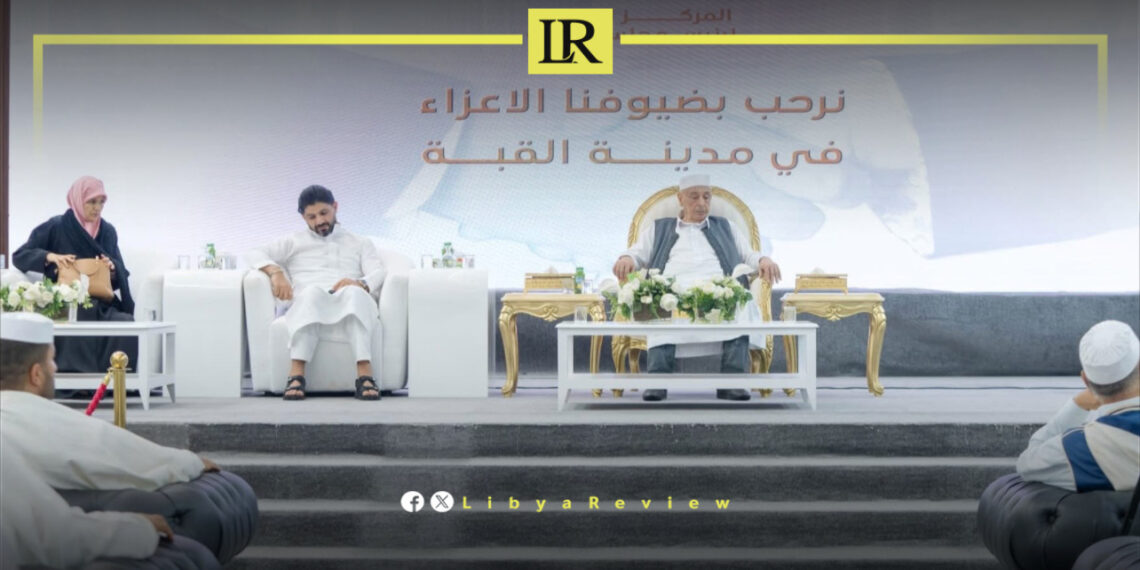Speaker of the Libyan House of Representatives, Counselor Aqeela Saleh, met with elders, tribal leaders, and dignitaries from western Libya at his office in the city of Al-Qubba. The meeting was attended by several Members of Parliament and focused on the latest political developments in the country.
During his address, Saleh welcomed the delegation from western Libya, expressing his deep appreciation and reaffirming that Libyans are brothers, and that Libya’s crisis would be resolved within days if left free of foreign interference.
He emphasized that Libya’s unity and sovereignty are non-negotiable, and that national reconciliation is the foundation for restoring peace and stability. Saleh reiterated that holding elections is the only way forward, describing them as the means to return power to the people by allowing them to choose their leadership freely, without exclusion or marginalization.
He called for the formation of a new, neutral government tasked with overseeing elections and safeguarding public funds.
In response, the tribal delegation thanked the Speaker and Parliament members for their hospitality and leadership, expressing their hope that the House of Representatives would guide Libya safely through the current phase. They stressed that their visit to eastern Libya sends a clear message: Libya is one — east, west, and south.
Libya has been in chaos since a NATO-backed uprising toppled longtime leader Muammar Gaddafi in 2011. The county has for years been split between rival administrations.
Libya’s economy, heavily reliant on oil, has suffered due to the ongoing conflict. The instability has led to fluctuations in oil production and prices, impacting the global oil market and Libya’s economy.
The conflict has led to a significant humanitarian crisis in Libya, with thousands of people killed, and many more displaced. Migrants and refugees using Libya as a transit point to Europe have also faced dire conditions.
The planned elections for December 2021 were delayed due to disagreements over election laws and the eligibility of certain candidates. This delay has raised concerns about the feasibility of a peaceful political transition.
Despite the ceasefire, security remains a significant concern with sporadic fighting and the presence of mercenaries and foreign fighters. The unification of the military and the removal of foreign forces are crucial challenges.


